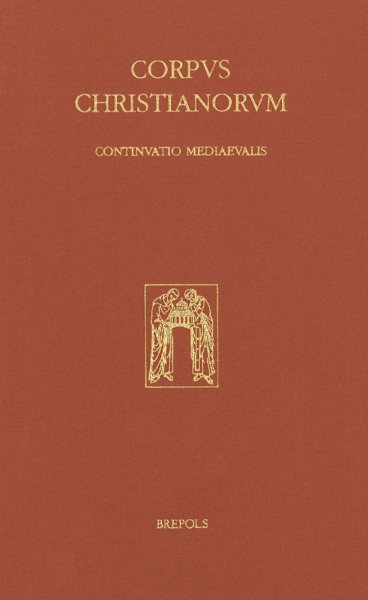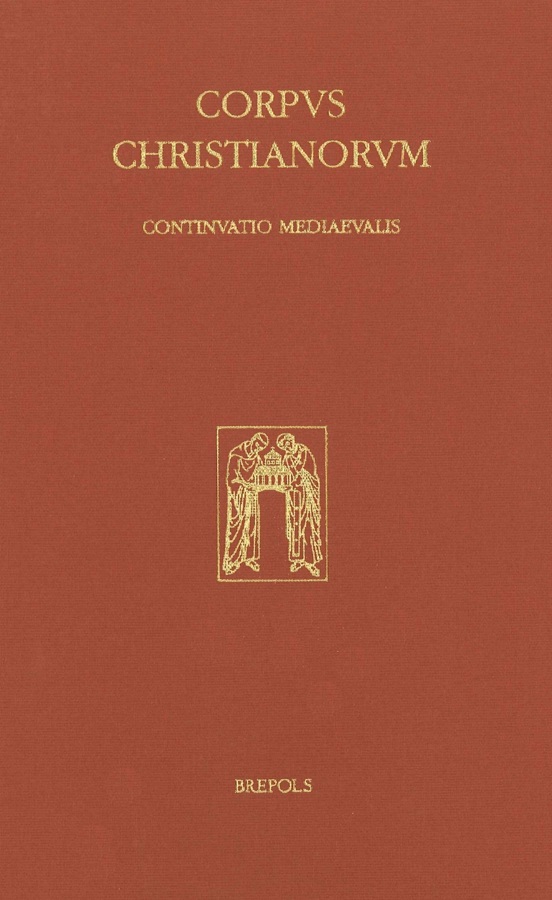
Exegetica
Expositiones Psalmorum duae sicut in codice Rothomagensi 24 asseruantur
Luc De Coninck (ed)
- Pages: 216 p.
- Size:155 x 245 mm
- Illustrations:2 col.
- Language(s):Latin
- Publication Year:2013
- € 170,00 EXCL. VAT RETAIL PRICE
- ISBN: 978-2-503-54533-2
- Hardback
- Available
"This publication (...) is another compelling contribution to the story of Irish exegesis that the series Sciptores Celtigenae is gradually revailing." (Richard Marsden, in: Revue d'Histoire Ecclésiastique, 2015-1, p. 379-381)
«Cette édition, remarquable pour ses résultats comme pour sa méthode exemplaire, éclaire donc d’un jour tout à fait nouveau notre connaissance de l’exégèse des psaumes au haut Moyen Âge, en replaçant dans une riche tradition ces fragments de commentaires qui, s’ils ne sont pas irlandais, ont eu du moins une destinée dans les Îles et qui constituent un nouveau témoignage de la postérité et de la fortune de l’exégèse antiochienne.» (J. Delmulle, dans le Bulletin Codicologique Scriptorium, 2, 2015)
"Expositiones Psalmorum duae represents a further and valuable contribution to our growing understanding of psalter interpretation in early Ireland. The preface is packed with valuable information. The scholia included in this volume provide a rich database for scholars seeking primary evidence for their researches and reflections on this important area of early Irish studies." (P. Byrne, in: Peritia, 274 [2016], forthcoming).
It is generally agreed that the double Psalter Rouen BM 24 (the “Psalter of Saint-Ouen”) goes back to 10th-century Ireland. Notes in the inner margin of its Hebraicum text have been used by L. De Coninck as a subsidiary source for the edition of the Latin epitome of Theodore of Mopsuestia’s commentary on the Psalms (CC SL, 88A).
In the present volume, the same editor publishes two series of scholia which are particularly important, as they fill a lacuna in the actual knowledge of exegetical traditions in the Early Middle Ages. Up to Ps. 16:11, the Hebraicum contains ca. 250 marginal scholia borrowed from an anonymous commentary which shared the “Antiochene” concern for the Psalms’ literal sense and relevance to the post-Davidic history of the Jewish people, but left out of account the Messianic prophecies that had been admitted by most Antiochene exegetes and by Theodore himself. Irish provenance is unlikely, as the subjacent Psalter is either a Vetus Latina with several peculiar readings, or a Greek text. A small number of excerpts from this same commentary can be found in the pseudo-Bedan argumenta and in several Irish and Continental compilations from the end of the eighth until the beginning of the eleventh century; these additional testimonia are recorded in the apparatus locorum similium of the edition.
Scholia inserted between the lines of the Hebraicum bear witness to the “classical” Irish exegetical school, explaining the Psalms in the light of post-Davidic Jewish history and of David’s own life as well. From Ps. 39:11 on, nearly all of these notes have a counterpart in the acephalous commentary Vaticanus Pal. lat. 68 (s. viii in., written in Northumbria, ed. M. McNamara, Studi e Testi 310). The Rouen Psalter completes the Vatican commentary up to that point; the content of ca. 750 scholia on Pss. 1:1 – 39:10 was previously unknown.
The edition contains a study on the MS. and all its components, as well as five indexes (biblicus, fontium, locorum similium, nominum et rerum, grammaticus et orthographicus). This edition is part of the Scriptores Celtigenae subseries.





